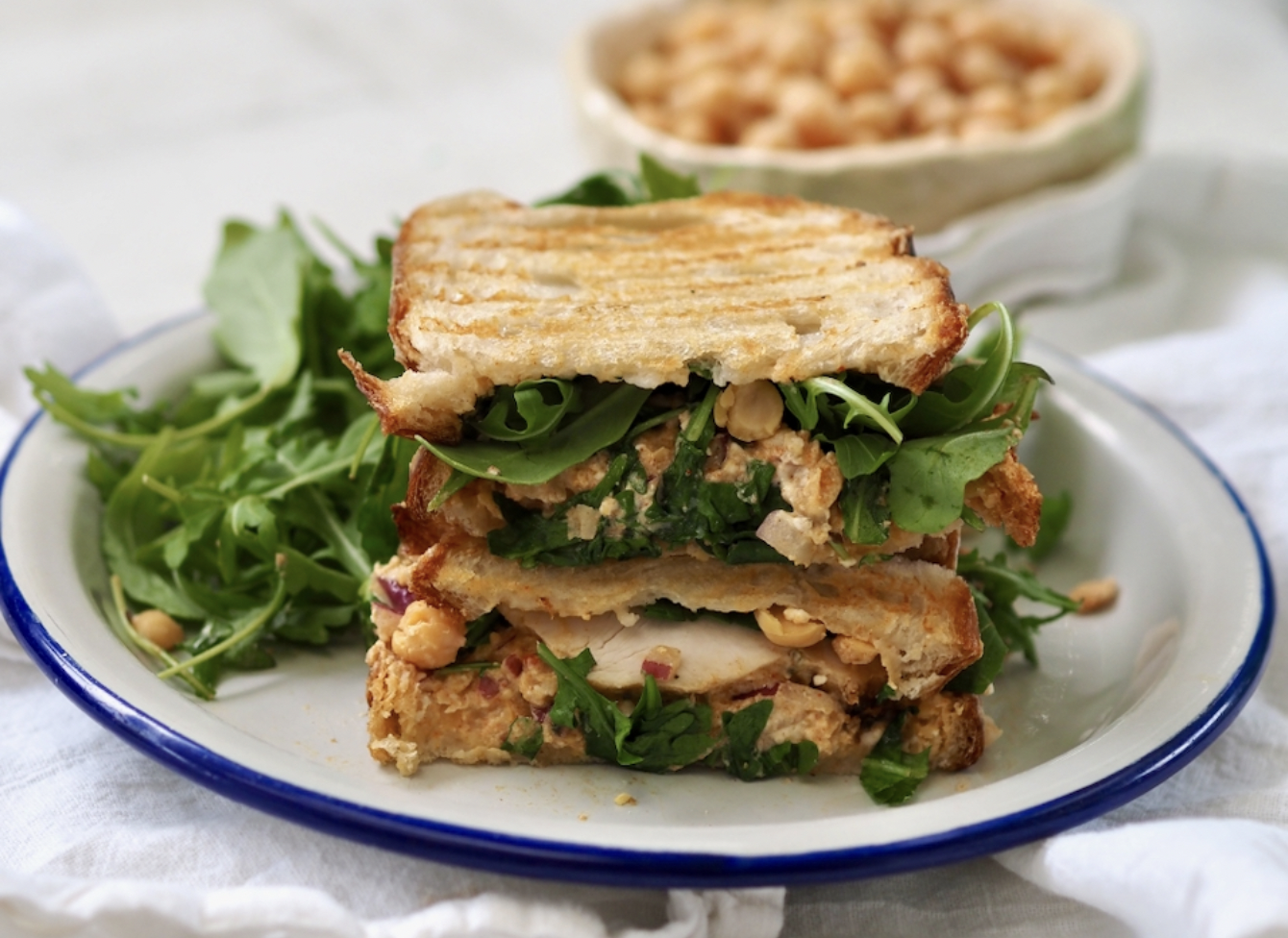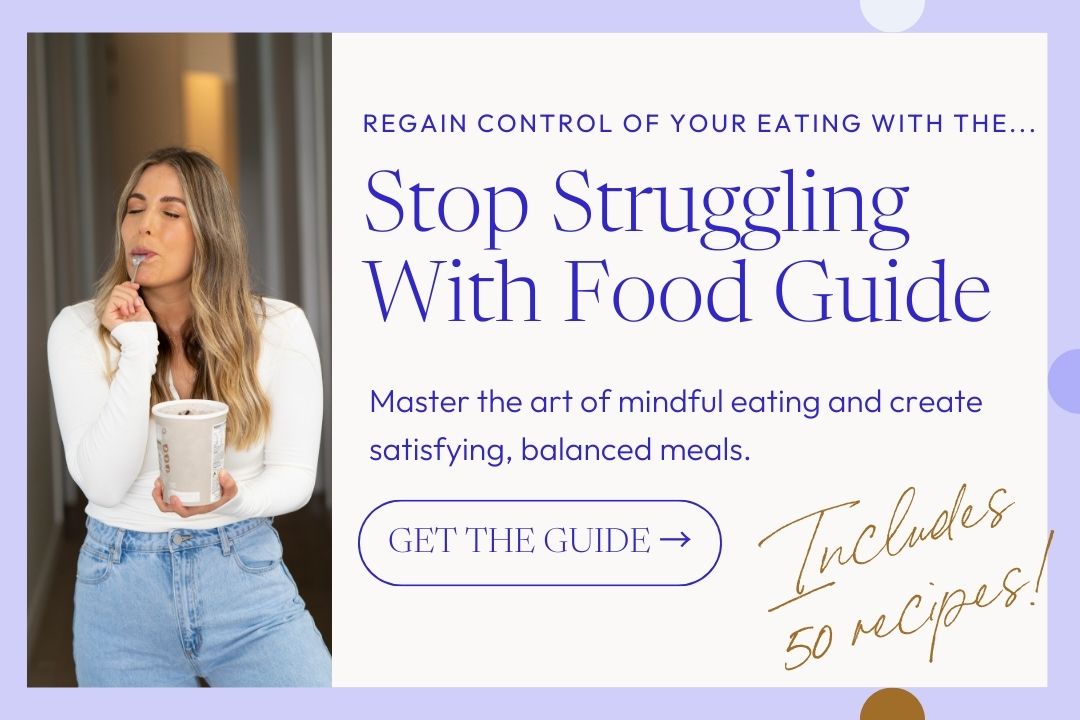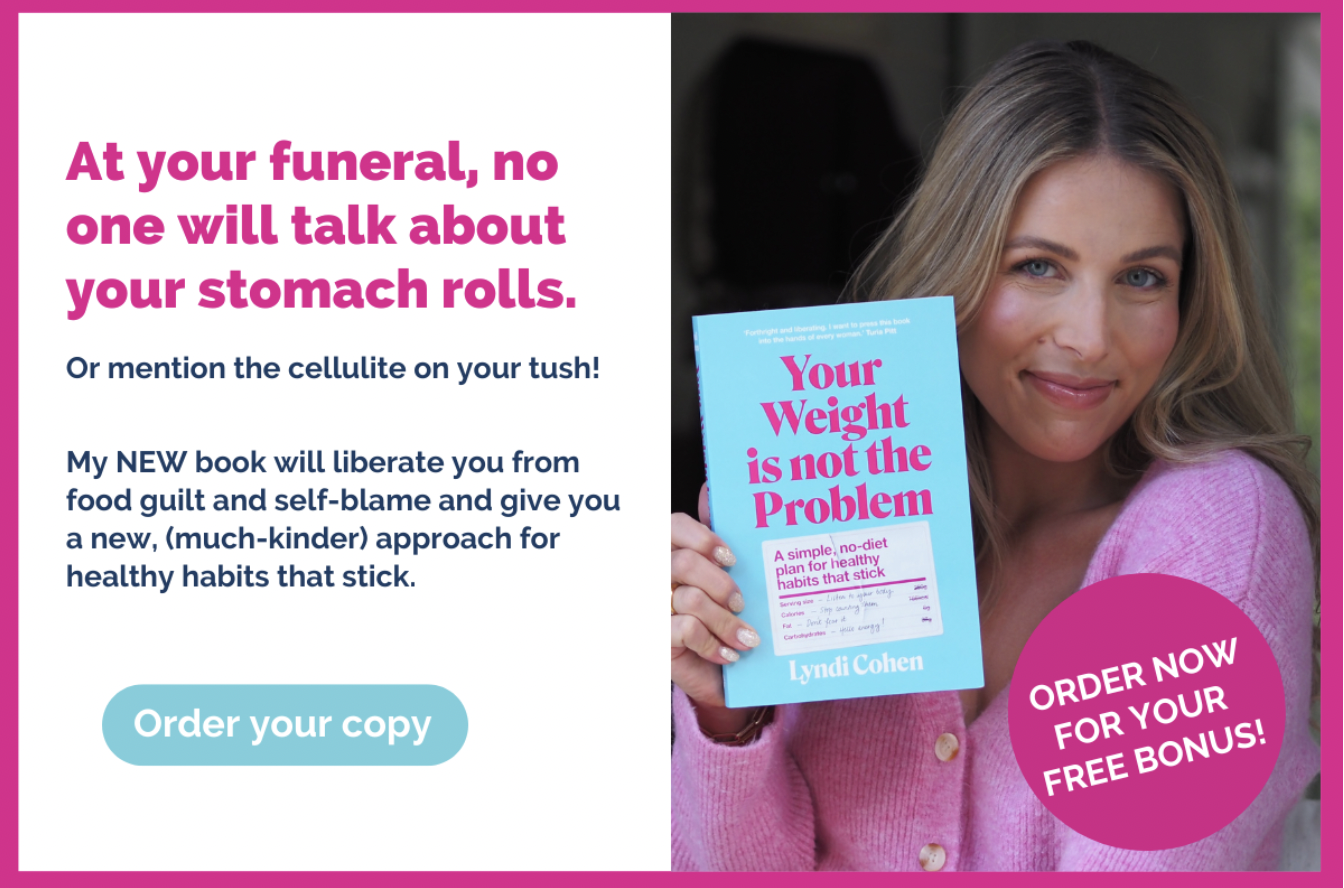Is coconut yoghurt healthy? Do I need protein added to my peanut butter or ice-cream? Should I ‘balance’ my hormones? Is collagen and bone broth essential for gut health?
Feeling overwhelmed by all the nutrition advice on how to be healthy? Let’s cut through the noise and clear up the confusion. Here are 8 common traps you should look out for.
1. Social media health gurus
Ever noticed how some health posts on social media seem to follow a script?
First, they scare you about some “secret” ingredient you’ve never heard of. Apparently, it’s in everything and it’s BAD. And just as the fear starts kicking in, they swoop in with a magical solution… which, surprise- they just so happen to sell! This usually also comes with a discount code (how convenient!).
Please watch out for these patterns and don’t fall for the scams. They’re often more about using fear-mongering tactics to make sales, than actually improving your health.
2. The protein craze
There’s a bit of an obsession with protein being added to things. And unlike fats and carbs, protein is the only macronutrient that hasn’t gotten a bad rap over the years.
We see products with “high protein” labels and automatically think it must be the healthier, better choice. But often, the products contain very little extra protein compared to the regular stuff. Protein pasta, protein ice-cream, protein-cookies, protein peanut butter… isn’t worth the extra price. Not to mention the stinky farts.
As a dietitian and nutritionist, I can assure you that it’s incredibly easy to meet your protein requirements from a balanced diet, without needing to fork out that extra $$ on supplements or protein-fortified foods.

3. Sugar is the devil
Whenever someone tells you that a single ingredient is the root of all evil- run. Foods like apples contain sugar, but they’re also full of antioxidants and fibre our body needs. And no, fruit is not fattening.
Just because something says ‘low sugar’ doesn’t mean it’s automatically healthy. Some low-sugar products can actually be full of other stuff we should watch out for, like saturated fats. Not to mention artificial sweeteners, which can lead to bloating and gas. Especially if you have them frequently.
Remember, there is no ‘good’ or ‘bad’ foods. Don’t miss out on the good stuff by focusing too narrowly on one thing.
4. Immune-boosting and hormone balancing ‘superfoods’
ALWAYS be sceptical of anyone selling a product that claims to “boost your immune system” or “balance your hormones.” When it comes to your body, it’s okay to question those too-good-to-be-true claims.
Our immune systems and hormones are controlled by lots of different factors, like our genes, lifestyle, and environment. So, while these products might sound promising, they often oversimplify things and can lead you down the wrong path.
Instead of relying on quick fixes, focus on a balanced diet, regular exercise, and good sleep to support your overall health.
5. Fearing the bloat
Bloating is normal. It’s not always a sign that something is wrong.
Unless your bloating is causing you serious discomfort or pain, there’s no need to panic. It’s just your body’s way of saying, “Hey, I’m working hard over here!”
Of course, if it gets severe or bothersome, it’s a good idea to check in with your doctor. But for the most part, a little bloating now and then is just a sign of a healthy gut doing its thing.

6. Bone broth and collagen for skin and gut health
You might have heard people raving about bone broth and collagen-like they’re a MUST-HAVE solution to all your skin and gut problems. But here’s the truth: they’re just foods. Sure, you can enjoy them if you like, but no single food can work wonders on its own. Whether it’s healing your gut or making your skin glow. It’s all about the big picture. And while bone broth and collagen might be good for you, they can also be pricey.
Instead of putting all your hopes on fancy foods, focus on getting the basics right. Think veggies, legumes, healthy fats and staying hydrated. These are the building blocks of a healthy lifestyle.
In my book, “Your Weight Not Problem,” I talk about something called the ‘hierarchy of healthy habits.’ It’s like a roadmap to real, lasting health. Start with the basics and work your way up to your ideal lifestyle. Because without those basic needs met, reaching your goals will be tough. So, while bone broth, collagen, and supplements might be nice extras, they’re not essential for a healthy life.

7. Coconut yoghurt is the healthiest yoghurt
Coconut yoghurt gets a lot of hype for being super healthy, but here’s the real deal: it’s packed with saturated fats and usually has fewer nutrients than regular cow’s milk yoghurt.
I could go on and on about this, but it’s a topic that needs its own blog post. Click here to dive into the details.
8. Seed oils are toxic
And lastly, seed oils. They’re often called out as toxic. But like most things in nutrition, it’s all about how much you eat something that matters the most.
If you consume them in moderation, they’re totally okay as part of a balanced diet.

Intuitive eating is your trusty source for health advice
When you tune into your hunger and eat appropriately, your body will instinctively let you know when it’s time to stop, and what food makes you feel your best. No more counting calories or avoiding pasta just because you read online you should eat gluten-free.
Digging into the concept of intuitive eating is a total game-changer. Not to mention it’ll help you stop yo-yo dieting once and for all.
To get started, head to this blog post. It’ll explain how intuitive eating works and equips you with the most important tool to get started: The Hunger Scale.
Need help taking the guesswork out of cooking healthy and delicious meals? Try my Back to Basics app – 7 days free.
And if you need extra support, check out my FREE 5-day course. I’ll teach you proven strategies to help you feel in control around food.